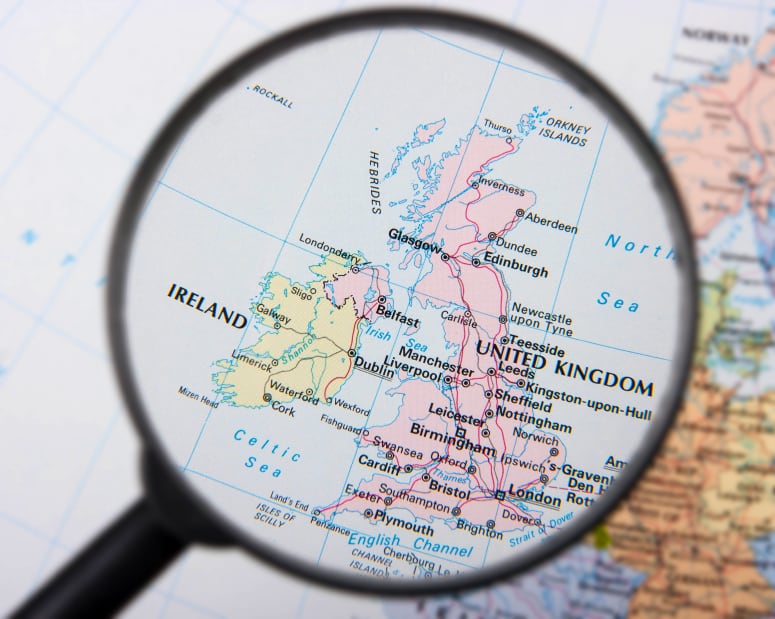Until now FDF has remained tight-lipped on the referendum in June this year when UK voters will decide whether or not Britain should quit the EU, but FDF director general, Ian Wright, welcomed his group's "overwhelming endorsement to remain in the EU".
“I am delighted that our executive committee felt strongly that we should have a clear point of view on the most important issues facing our industry. Few are more important than the EU referendum and our point of view is clear – the UK should remain a member!”
However, with a response rate of only 50% of the group's 300-odd members, the message is perhaps less clear-cut. Of the 50% that chose to vote, 17% said they preferred not to express a preference while 12% backed Brexitting.
Key reasons given for wanting to stay an EU member state included the single market, access to raw materials and the free movement of labour. Wright said: “FDF members also helped to identify priorities for ongoing EU reform that would boost our sector’s long term competitiveness. These included increasing access to non-EU markets to boost exports of finished goods and ensure imports of required ingredients, safeguarding free movement of labour within the EU and tackling unnecessary red tape, in particular to ensure consistent interpretation and implementation of EU employment regulation.”
But Wright said the group completely respected the decision of those that voted no, adding it did not speak on behalf of any single member company.
FDE: ‘Bad for UK, bad for Europe & bad for business’
Meanwhile FDF’s European counterpart FoodDrinkEurope (FDE) has taken a stronger position following a collective decision that was supported by its board. It made a statement warning that although the vote itself may be as simple as ticking a box marked ‘in’ or ‘out’, the

consequences are more complex.
“The outcome of the referendum is not only important for the UK and its electorate, it is also critical for the future of the EU itself. Just as EU legislators make good progress on issues close to the heart of businesses, such as the single market and better regulation, the uncertainty that would result from a decision to leave the EU would be bad for the UK, bad for Europe and bad for business.”
The EU is the UK’s biggest export market that is worth £9.3 billion (€11.8bn) in 2014 - almost two thirds of total UK exports, it said.
“Membership of the European Union brings major benefits. If the UK were to leave the EU, it would no longer profit from preferential access to the markets of the 27 other EU member states; there would no longer be free circulation of UK goods within the EU Single market. The UK would no longer be subject to, or protected by, EU common policies such as the Common Agricultural Policy and its direct payments, EU safety net measures, EU trade policy, promotion funds or rural development measures.”
What's certain is uncertainty
Last week the Food Collaboration Council published a report in which it urged the UK to “wake up to the enormity of unravelling 43 years of co-negotiated food legislation”.
Britain’s food manufacturing sector would be particularly hard hit in the event of an exit, it said, as it is more heavily dependent on a European workforce with over one quarter (26.9%) hailing from the EU bloc compared to just 6.1% of the overall workforce. It also warned of inevitable rises in food prices due to a weak pound raising the cost of imports.
“Brits need to stop joking about wine lakes, bent bananas and myths from the EU past, which have been sorted, and get real about security of food supply today and tomorrow,” the authors wrote.
Other analysts are more measured in their analysis of what Brexit would mean – mainly because it's hard to predict.
Head of countries’ analysis at Euromonitor International, Media Edhbal, told FoodNavigator: “It is very difficult to answer questions about a Brexit as nobody really knows what will happen because the situation is unprecedented. The uncertainty is the key point and investors are likely to delay investment decisions in the build-up to the June referendum and afterwards, if the vote is for an exit, until the UK’s trade position is clarified. Uncertainty would contribute to capital flight and the value of the pound plummeting which would make food imports more expensive for British food manufacturers that rely on importing ingredients."
But there could also be benefits, she said. "It would benefit food exporters as their produce becomes more competitive in global markets. In the event of a Brexit, it may take years to sort out the fine details of future trade negotiations but it could provide a boost for local producers especially if the consumer looks inwards towards supporting UK business at a time of heightened uncertainty.”
Should we stay or should we go?
Individual food manufacturers and retailers have opposed Brexit, including Diageo, Greene King and Asda, while around one third of companies listed on the FTSE 100 have signed a letter urging the UK to stay in the EU. Notable absentees are major UK retailers Tesco, Marks & Spencer and Sainsbury, which said the matter is for the British electorate to decide.
Meanwhile, an open letter backing the vote to leave campaign was signed by food industry operators, such as the president of the UK Bangladesh Caterers Association and Moni Varma, owner of rice supplier Veetee.

“As patriotic Britons of Commonwealth backgrounds, we saw the EU renegotiation as an opportunity to rediscover Britain’s global vocation. As long as Britain’s trade policy is controlled by the EU, we cannot sign bilateral free trade agreements with Pakistan, India, Bangladesh, Australia, New Zealand or for that matter any other non-EU state,” the letter reads.
Also sitting in the pro-Brexit camp are a growing number of irate French politicians, fed up with what they see as Britain hi-jacking the common good of Europe for short-term political gains, and preventing other committed EU member states from progressing.
Writing in an editorial blogpost on Euractiv, French socialist MEP Virginie Rozière slammed the UK for “[taking] 60 years of European construction hostage for the benefit of a short-term domestic electoral agenda”, although Rozière’s stance does not reflect the official position of the French Socialist party.
